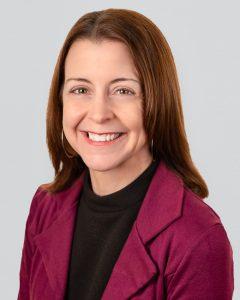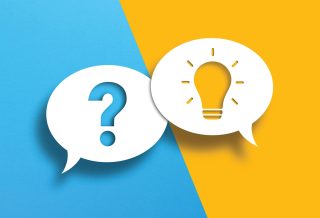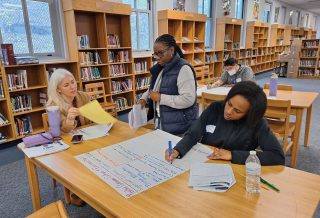FOCUS
Educator retention is about caring for those who care for others
By Suzanne Bouffard
Categories: Learning communities, Social & emotional learningFebruary 2023
This month, The Learning Professional looks at the issue of educator retention from a systemic perspective, asking: What support do educators at all levels need to be satisfied, strong, and successful for the long term?
Along with compensation, respect, and other important factors, we know that professional learning and support are essential. That’s because educator retention isn’t just about keeping bodies in our schools. It’s about caring for the adults who care for students.
I was reminded of this recently when I heard a heartbreaking story about a principal pushed to the limit. On the public radio show “This American Life,” a former Arizona Principal of the Year said, “Never in my 29 years as an educator would I think of leaving my school halfway through the year” (Glass, 2023). But that changed after she was subjected to harassment and violent threats for enforcing state-mandated COVID-19 mitigation measures.
For months before resigning, she walked around with horrific voicemail messages, some wishing her dead, echoing in her head. But she kept the specific details of the messages, and her feelings about them, to herself because she wanted to shield the people around her. She said, “People want leaders who are strong but who aren’t emotional,” and added, “I don’t ever want to put my own burdens and my own challenges on my people.”
I’ve thought a lot about those words. Why were those threats her burden? Why does our system make educators feel solely responsible for fixing society’s dysfunction? Why have we made them feel that their only recourse is to leave the very places they are needed most?
I’ve also thought a lot about the alternative. What if this principal had had a professional learning network to lean on? A group of colleagues — perhaps in other schools or other states — with whom to share the burden, get support, and find a path forward, not just for her professional career but for her mental health? And what if that network wasn’t something she had to search for but was the norm for everyone in her position?
This principal’s story is a reminder of why the vision of every educator having a robust support system is not an academic exercise, nor a pie-in-the-sky goal. It shows why it’s essential for everyone to understand what meaningful professional learning and support look like and why one-day workshops aren’t sufficient to help educators, and therefore students, be successful. With the challenges we’re facing, we can’t let old notions of professional learning persist.
I’m not suggesting that professional learning can solve all of the problems in schools and society. Professional support can’t undo the social forces that make some people think it’s OK to issue death threats to educators. But without it, we have little hope of keeping educators in schools and keeping them whole.
This issue’s authors, including three new Voices columnists, illustrate how systems of support can help ensure education is a sustainable and fulfilling profession. Val Brown’s column urges us to foster a sense of belonging among new teachers. Kathy Perret’s Coach’s Notebook shares how “stay interviews” can support retention. And Laura L. Summers kicks off the new Focus on Wellness column.
This issue offers practical strategies, but also hope for our profession. If you find inspiration here, let us know. And if you have questions or concerns, let us know that, too. None of us should face today’s challenges alone.
Download article here.
References
Glass, I. (Host). (2023, January 27). You’re it [Audio podcast episode]. In This American Life. WBEZ Chicago. www.thisamericanlife.org/790/youre-it

Suzanne Bouffard is senior vice president of communications and publications at Learning Forward. She is the editor of The Learning Professional, Learning Forward’s flagship publication. She also contributes to the Learning Forward blog and webinars. With a background in child development, she has a passion for making research and best practices accessible to educators, policymakers, and families. She has written for many national publications including The New York Times and the Atlantic, and previously worked as a writer and researcher at the Harvard Graduate School of Education. She has a Ph.D. in developmental psychology from Duke University and a B.A. from Wesleyan University. She loves working with authors to help them develop their ideas and voices for publication.
Categories: Learning communities, Social & emotional learning
Recent Issues
BUILDING BRIDGES
December 2024
Students benefit when educators bridge the continuum of professional...
CURRICULUM-BASED PROFESSIONAL LEARNING
October 2024
High-quality curriculum requires skilled educators to put it into...
LEARNING TO PIVOT
August 2024
Sometimes new information and situations call for major change. This issue...
GLOBAL PERSPECTIVES
June 2024
What does professional learning look like around the world? This issue...












